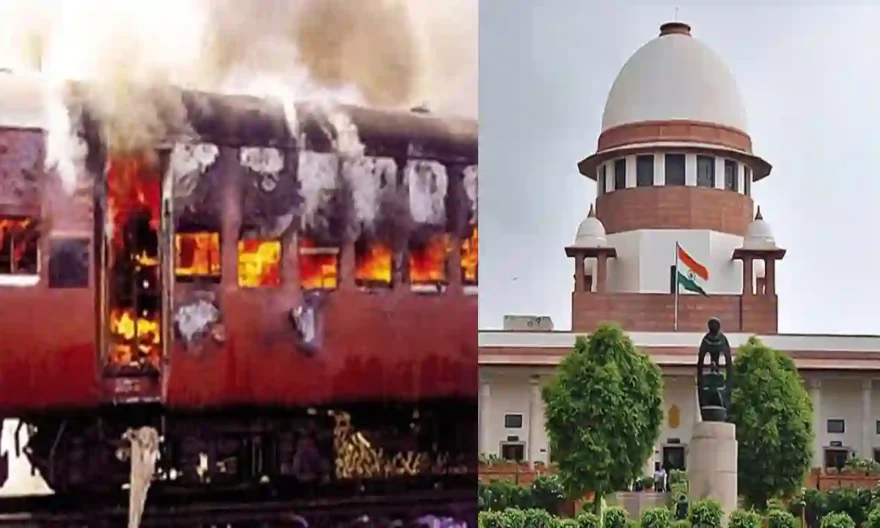
The Supreme Court on Thursday granted bail to Farooq, one of the convicts in the Godhra train burning incident, despite strongly opposed by Gujarat government.
A bench of Chief Justice DY Chandrachud and Justice PS Narasimha heard the counsel appearing for Farooq, one of the convicts, that he be granted bail considering the period undergone till now.
Applicant has sought bail on the ground that he has been in custody since 2004 and has undergone imprisonment for about 17 years. In View of the facts and circumstances of the case and the role attributed to the applicant, we directed the applicant to be granted bail subject to such terms and conditions as may be imposed by the sessions court, CJI DY Chandrachud said
Appearing for the Gujarat government,Solicitor General Tushar Mehta, said that
It was one of the most heinous crimes, People were locked in bogies and burnt alive. Under normal circumstances stone-throwing can be a less serious offence but this is different.
Tushar Mehta also said that stones were pelted to ensure that the passengers could not come out and in addition, stones were also thrown at the fire tenders. That’s why this convict should not be given bail.
The Supreme Court said that it will hear the appeals of the remaining 17 convicts after the holidays. On February 27, 2002, a fire broke out in the S-6 coach of the Sabarmati Express at Godhra, killing 59 people, triggering riots in the state.




